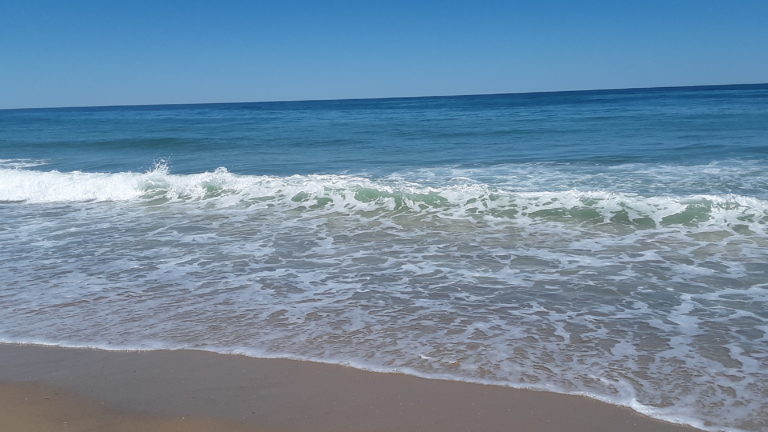Through Them, Through Me: Freedom and the Sea
I love Alfred Corn’s translation of Pablo Neruda’s “The Poet’s Task” from Spanish to English, which was published in the twelfth issue of Columbia Journal in 1987.
I admire it for bidding the reader to listen to the sea. This sea is the actual sea, as well as the thimbleful of Sybil in Larry Levis’s “Elegy with a Thimbleful of Water in the Cage.” In Levis’s poem, Sybil has turned so small that nobody can hear her anymore. She “whispers ceaselessly its dry cage / without listeners.”
In “The Poet’s Task,” the poet is the listener of Sybil, that “hum, faint but insistent.” The poet is a welcome apparition who points to how “a star shimmers and trills in its rose window.”
The poet Jeffrey Thomson said during a recent interview that poetry often articulates our most joyous and solemn moments, in weddings and funerals. He said poetry carries a kernel of magic or truth that is akin to faith, which is authentic and true, regardless of the provenance or legitimacy of the underlying reliquary.
Here, I feel something akin to faith that Neruda saves in “a cup outside of time.” It is the sea and memories of the sea. It is its wonder, in the deep imagination of Neruda’s dreams. But the poem goes beyond the page, as the poet aims to “come up and spring open the cage” through close “listening” and keeping alive the memory of the sea’s outcry.
I smiled at the thought of this sea, and the turn in the translation when looking back at the original’s final stanza:
“Y así, por mí, la libertad y el mar
responderán al corazón oscuro.”
Corn’s translation interprets the act of the speaker-bard and turns it to the collapse, the kiss, and keening that came before. And isn’t it true that as poets we often turn toward each other—just as readers turn to their family and community—which represent to us a kind of answer in the nature of things?
The Poet's Task
Pablo Neruda
Translated by Alfred Corn
Whoever isn't listening to the sea this Friday
morning, whoever is trapped inside some
house, office, factory—or mistress
or streetcorner of coalmine or solitary confinement:
to that person I make my way and without speaking or nodding
come up and spring open the cage;
and something begins to hum, faint but insistent;
a great snapped-off clap of thunder harnesses itself
to the weight of the planet and the foam;
the hoarse rivers of the ocean rise up,
a star shimmers and trills in its rose window,
and the sea stumbles, falls, and continues on its way.
Then, with destiny as my pilot,
I will listen and listen harder to keep alive
in my memory the sea's outcry.
I must feel the impact of solid water
and save it in a cup outside of time
so that wherever anyone may be imprisoned,
wherever anyone is made to suffer in the dying year,
I will be there, whispering in the ceaseless tides.
I will drift through open windows,
and, hearing me, eyes will glance upward
saying, How can we get to the ocean?
And, without answering, I will pass on
the collapse of foam and liquid sand,
the salty kiss of withdrawal,
the gray keening of birds on the shore.
And so, through me, freedom and the sea
will bring solace to the downcast heart.




